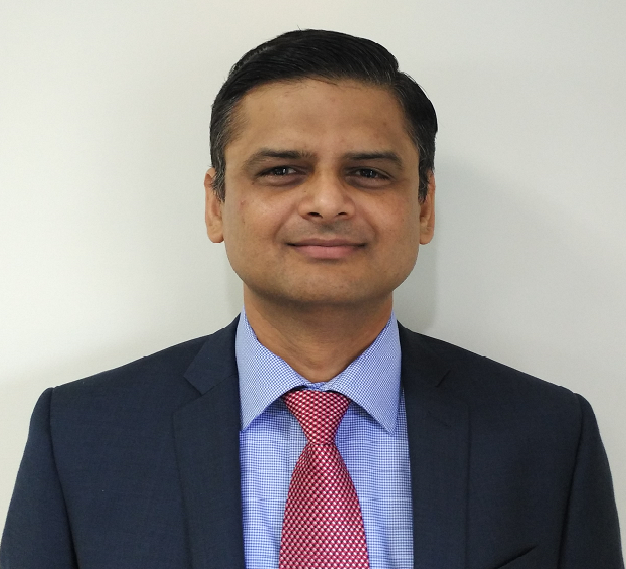Indian venture capital firm Inflexor Ventures is one of the few funds in the country that has its eyes set on deep tech companies. Inflexor set up its first fund in 2015, when India’s startup ecosystem was largely flooded with consumer-facing companies.
With its maiden fund, which had a corpus of INR 75 crore (USD 10 million), Inflexor Ventures backed 12 companies that use artificial intelligence, virtual reality, big data, and internet of things to accomplish things like reducing air pollutants, increasing customer engagement, developing orbital launch vehicles, and providing immersive education for children.
The founders of Inflexor Ventures, Jatin Desai and Venkat Vallabhaneni, have strong engineering backgrounds. They worked in the US for almost two decades building technology for investment banks to ascertain risk.
From its second fund, Inflexor Ventures plans to invest in 20 to 25 startups in their pre-Series A to Series B phases.
We spoke with Desai, managing partner of Inflexor Ventures, to learn more about the fund and how deep tech has evolved in India in recent years.
The following interview has been edited for brevity and clarity.
KrASIA (Kr): What is the investment direction for Inflexor’s second fund?
Jatin Desai (JD): The corpus is INR 700 crore (USD 93.5 million), where we have an INR 500 crore (USD 67 million) Indian corpus and an INR 200 crore (USD 27 million) overseas green shoe option.
We like to think of ourselves as a fairly sector-agnostic fund as long as it happens to be a deep tech company with tech IP. We like to see innovative startups with deep tech capabilities that have commercially viable products in agritech, fintech, health tech, edtech, and cybersecurity.
About 70% of our investments will go to pre-Series A and Series A companies, and 30% will be for companies raising Series B rounds. For the first bucket, we would start with checks worth half a million to 1 million dollars, and go up to USD 4 million. For Series B rounds, we would go for USD 4 million and above.
Our sweet spot for investments is the intersection of deep tech and SaaS companies that have a recurring revenue model. We understand that it’s not always easy to find this intersection, but we do have companies in our portfolio that fall in this sweet spot. We prefer low capital expenditure models, and we are looking for low capex companies that have global market potential.

Kr: What kind of due diligence does Inflexor do to minimize risk when assessing companies?
JD: We do a couple of things to ensure we are backing the right company. First, we only explore companies with deep tech capabilities that have long-lasting impact on society. In today’s context, that would include AI, big data, AR, VR, robotics, space tech, and IoT.
Secondly, we need to ensure that deep tech products are commercially viable. Startups are also very “smart”—they use whatever buzzword that is prevalent to define themselves. So many startups nowadays say they are an AI company. One of our most important steps is tech IP due diligence. We look in detail at their tech architecture, design, and other such factors. We make sure that they are real deep tech companies. In some cases, we even look at their code.
We generally invest in post-revenue companies. We are not in the business of investing in companies based on just concepts and ideas. We look for at least couple crores (INR 20 million or USD 267,000) in revenue before we invest in a startup.
Kr: How has India’s deep tech scene changed since Inflexor’s founding in 2015?
JD: When we started Fund 1, Indian tech startups were all about e-commerce, logistics, and fintech. There was hardly anyone who was focusing on B2B enterprise or deep tech. That’s why we kept Fund 1 small at just INR 75 crore (USD 10 million); we were not sure we will find many companies in these categories. But we are quite confident in Fund 2, as we know there are a lot of deep tech companies in India that are doing exceptional work. As I say this, I acknowledge that there is a lot of noise in the market, and we have to skillfully cut through the noise to find truly innovative startups that have a successful, commercially scalable product.
Almost half of the companies from Fund 1 have recurring revenue, and they have followed the template of expanding into Middle East and Southeast Asia once they get decent traction in India. For many of our companies the real scale is coming from Europe and the US.
Kr: Are you planning to invest in Southeast Asian startups?
JD: Southeast Asia is definitely an area of interest for us in terms of deal sourcing and as a market to sell to. We are allowed to invest 25% of our fund in global markets, but those investments will be largely opportunistic. We have invested in a Singapore-based company called Cloudsek from the first fund. The only condition is that there has to be some India connection, either the founder is Indian or the company has its tech shop in India.

